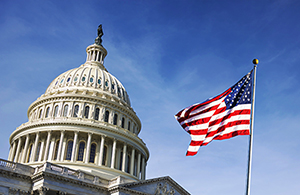
The Consolidated Appropriations Act, signed into law December 27, 2020, provides $900 billion dollars to different areas, issues, agencies, and departments – including stimulus payments for individuals, an employee retention tax credit for businesses, and a continuation of the Paycheck Protection Program (PPP).
Stimulus Payments
Similar to the stimulus payments allotted last year, this second round of payments has eligibility based off of 2019 tax returns and is lowered to $600. Eligible individuals will receive the full $600, married joint filers will receive $1,200, and head-of-household filers will receive $600 for each dependent 17 years old or younger.
Employee Retention Tax Credit
The Employee Retention Credit – established by the CARES Act in 2020 – is a 50% refundable payroll tax credit for an employer’s portion of Social Security payroll taxes based on qualified wages paid by employers to employees. In 2021, the credit rises to 70% and extends through July 1, 2021. Additionally, employers can now both claim the Employee Retention Credit and apply for a PPP loan, which was not permitted last year, but wages calculated with the credit are not forgivable costs under a PPP loan.
Paycheck Protection Program
Through the Consolidated Appropriations Act, a portion of PPP loan funding is reserved for businesses that have not yet applied for a PPP loan. The Act also clarifies that forgiven PPP loans are not taxable, as well as that deductions generated or funded by forgiven PPP loans will not be denied, basis increases will not be denied, and tax attributes will not be reduced.










